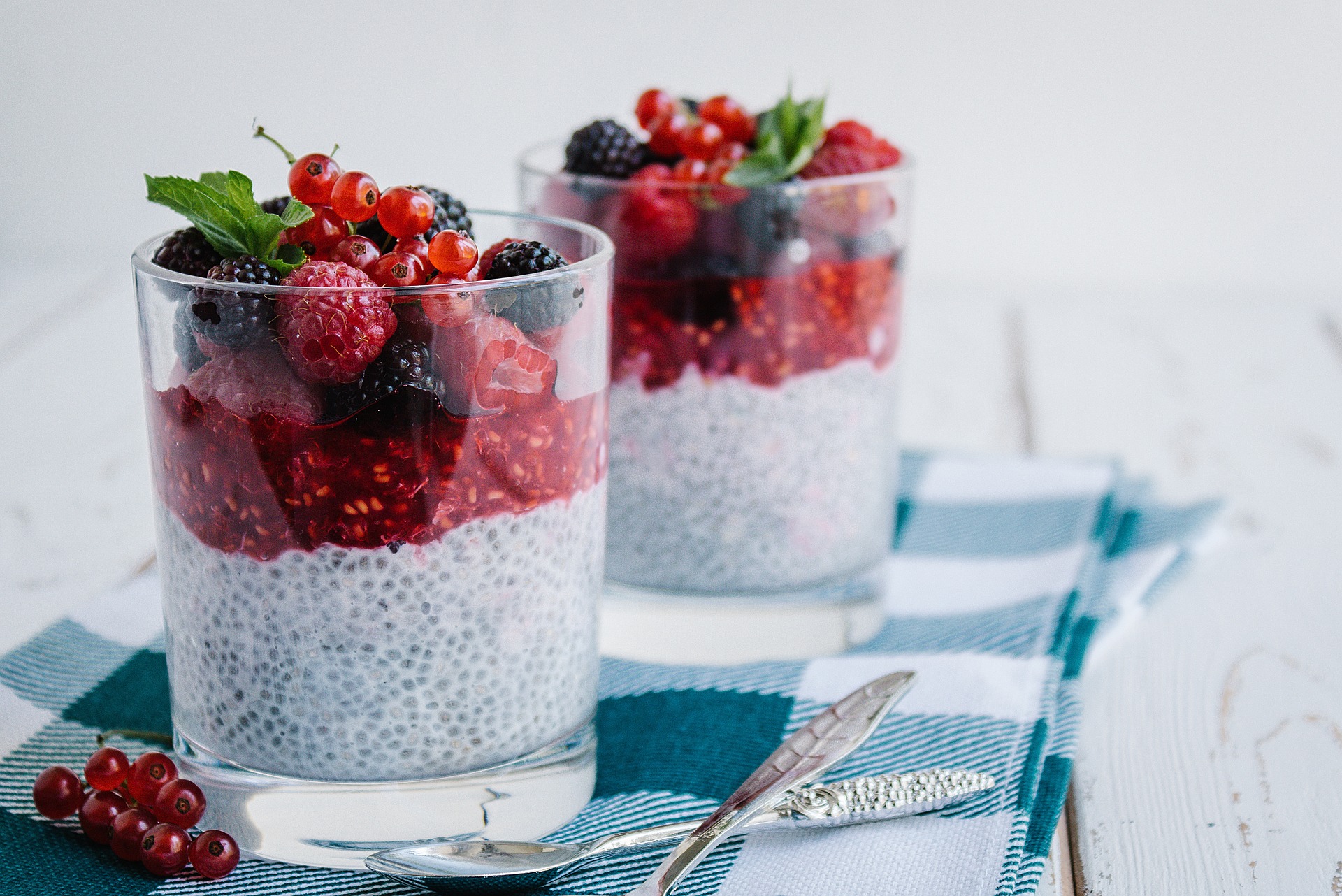Everything You Need to Know About Nutrition for Macular Health
Macular degeneration affects millions worldwide as one of the leading causes of vision loss, particularly among older adults. While many factors contribute to this eye condition, nutrition plays a crucial role in both prevention and management. Proper dietary choices can significantly impact macular health, potentially slowing progression in those diagnosed with macular degeneration and reducing risk factors in others. Understanding the connection between what we eat and our eye health provides a foundation for making informed nutritional choices to support long-term vision.

Discover What You Need to Know About Eye-Healthy Foods
The foods we consume daily can either support or potentially harm our eye health. Research has consistently shown that certain nutrients have protective effects on the macula, the central part of the retina responsible for sharp, central vision. Antioxidants, particularly lutein and zeaxanthin, act as natural sunglasses, filtering harmful blue light and neutralizing free radicals that can damage eye cells. These compounds are found abundantly in dark leafy greens like kale, spinach, and collard greens.
Omega-3 fatty acids, particularly DHA (docosahexaenoic acid), form structural components of the retina and may help prevent inflammation. Cold-water fish such as salmon, mackerel, and sardines are excellent sources of these essential fats. Plant-based options include flaxseeds, chia seeds, and walnuts, though they contain a form that requires conversion in the body.
Vitamin C, vitamin E, zinc, and copper also play vital roles in eye health. Citrus fruits, bell peppers, and berries provide vitamin C, while nuts, seeds, and vegetable oils supply vitamin E. Oysters, beef, and legumes are rich in zinc, and copper can be found in shellfish, nuts, and seeds.
Explore How Nutrition Can Contribute to Macular Care
The AREDS (Age-Related Eye Disease Study) and AREDS2 formulations represent landmark research in nutritional support for macular health. These clinical trials demonstrated that specific combinations of vitamins and minerals could reduce the risk of advanced AMD progression by about 25% over five years in high-risk individuals. The AREDS2 formulation includes:
-
500 mg vitamin C
-
400 IU vitamin E
-
10 mg lutein
-
2 mg zeaxanthin
-
80 mg zinc
-
2 mg copper
While these supplements show promise for those already diagnosed with intermediate or advanced AMD in one eye, they’re not recommended for prevention in healthy individuals. The benefits come from the precise formulation and dosage, highlighting why professional guidance is essential before starting any supplement regimen.
Beyond supplements, dietary patterns as a whole show significant associations with macular health. The Mediterranean diet, rich in fruits, vegetables, whole grains, olive oil, and fish, has been linked to lower AMD risk. Conversely, high-glycemic diets with processed foods, refined carbohydrates, and high sugar content may increase inflammation and oxidative stress throughout the body, potentially affecting the eyes.
Learn More About Supporting Macular Health With Nutrition
Implementing nutrition strategies for macular health involves both what to include and what to limit. Creating an eye-healthy meal plan starts with building your plate around colorful vegetables and fruits, particularly yellow, orange, and dark green varieties. Aim for at least five servings daily, with special emphasis on leafy greens like spinach and kale, which provide substantial amounts of lutein and zeaxanthin.
Incorporate fatty fish twice weekly for omega-3 fatty acids, and choose whole grains over refined carbohydrates to maintain stable blood sugar levels. Nuts and seeds make excellent snacks that provide vitamin E and healthy fats. For cooking, opt for olive oil, which contains beneficial polyphenols with anti-inflammatory properties.
Equally important is limiting certain foods that may compromise eye health. Reduce consumption of highly processed foods with trans fats and high levels of added sugars, both of which can promote inflammation and oxidative stress. Moderate alcohol consumption and avoid smoking, which dramatically increases AMD risk regardless of diet.
Hydration also plays a role in overall eye health, helping to prevent dry eyes and supporting cellular function. Water is the optimal choice, while sugary beverages should be limited.
For those with specific health conditions like diabetes or hypertension, which can impact eye health, nutritional approaches may need modification. Working with healthcare providers to manage these conditions through diet can indirectly benefit macular health by controlling systemic inflammation and vascular health.
Nutritional Support Options and Products for Macular Health
Various products and supplements are available specifically formulated to support macular health. When considering these options, it’s important to understand their differences and appropriate applications.
| Product Type | Common Ingredients | Potential Benefits | Considerations |
|---|---|---|---|
| AREDS2 Supplements | Lutein, zeaxanthin, vitamins C & E, zinc, copper | Research-backed for certain AMD stages | Not preventive for those without AMD |
| Lutein & Zeaxanthin Supplements | Varied concentrations of these carotenoids | May support macular pigment density | Quality and bioavailability vary by brand |
| Omega-3 Supplements | EPA/DHA from fish oil or algae | Support retinal structure and reduce inflammation | Quality matters; some may cause digestive issues |
| Eye-Healthy Multivitamins | Broader spectrum of vitamins and minerals | General nutritional support | May not have therapeutic doses for eye health |
| Whole Food Powders | Concentrated fruits, vegetables, and superfoods | Natural source of multiple nutrients | Less standardized doses than supplements |
Prices, rates, or cost estimates mentioned in this article are based on the latest available information but may change over time. Independent research is advised before making financial decisions.
While supplements can fill nutritional gaps, they can’t replace the synergistic benefits of whole foods. Additionally, some supplements may interact with medications or have contraindications for certain health conditions. High-dose supplements taken without need might even cause harm in some cases, such as increased lung cancer risk in smokers who take beta-carotene supplements.
Practical Implementation for Daily Life
Translating nutritional knowledge into everyday habits makes the difference in supporting long-term macular health. Start by gradually incorporating more colorful vegetables and fruits into meals, perhaps by adding spinach to smoothies or having berries as snacks. Plan meals around plant foods, with animal products serving as sides rather than the main focus.
Batch cooking can help ensure healthy options are available even on busy days. Prepare large portions of vegetable-rich soups, stews, or grain bowls that incorporate multiple eye-healthy ingredients. Consider growing easy herbs or vegetables like kale if space allows, providing the freshest possible source of nutrients.
When eating out, look for establishments that offer vegetable-forward options and seafood prepared with healthy cooking methods. Read nutrition labels when shopping, focusing on products with minimal added sugars and higher fiber content.
Remember that nutritional approaches to macular health work best when combined with other protective measures: wearing sunglasses with UV protection, managing chronic conditions like hypertension and diabetes, avoiding smoking, and getting regular comprehensive eye exams to detect changes early.
This article is for informational purposes only and should not be considered medical advice. Please consult a qualified healthcare professional for personalized guidance and treatment.




